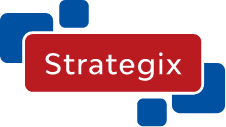When interacting with existing and potential customers, you need the right principles, practices and guidelines in place. This is why you need a customer relationship management (CRM) solution that is tailored to your business and caters for both sales and service-related interaction. In this context, it tackles the area of sales force automation.
The role that comprehensive CRM plays in your sales department cannot be underestimated, but it is important to distinguish between the ways CRM adds value to staff, management and the upper echelons. As you move up the ladder, roles tend to change from more tactical to more strategic, and that is why CRM, specifically sales force automation, should be a blanket application across the business.
Let us take a look at how the correct CRM system can empower your sales team on the floor.
Your salespeople are the revenue-generators. They work directly with the customer and are the face of your company. Logically, sales force automation would make their job easier and allow for more quality service by freeing up their time.
Your CRM in the form of sales force automation is there to facilitate salespeople and remove the repetitive paperwork on which they are wasting time. They should be able to respond to customer queries faster and with more information; they need to be able to access customer and production information for recording, tracking and updating purposes. They need access to testimonials, sales programmes and competitive data. CRM is a tool that makes their lives easier and once it becomes a help and not a hindrance, your salespeople will be more keen to keep it updated – which helps everyone else moving up the company structure. The less complicated the system, the more productive the sales force.
Account executives spend a good amount of time communicating with mid-management. Your sales force automation system should provide support in reporting daily, weekly, monthly and quarterly results; obtaining approval for discounts and quicker delivery; managing customers with bad credit ratings and so on. It is crucial that this communication with management is streamlined and accurate, as it can affect sales and sales management dramatically. Tracking commission and targets is also an important function of sales force automation. Not only does it need to be accurate as it concerns money; it also has a large effect on company morale.
In our next blog, we’ll look at the role of CRM and sales force automation in mid-management.
Microsoft Dynamics CRM is the perfect solution to your CRM needs. More than four million users worldwide use it as their preferred CRM solution. It offers Outlook integration, which means that all your emails, appointments, tasks and contacts are flawlessly and effortlessly synchronised. It is also fully customisable: you get automated notifications, custom fields on your forms and custom reporting, to name a few standouts.





